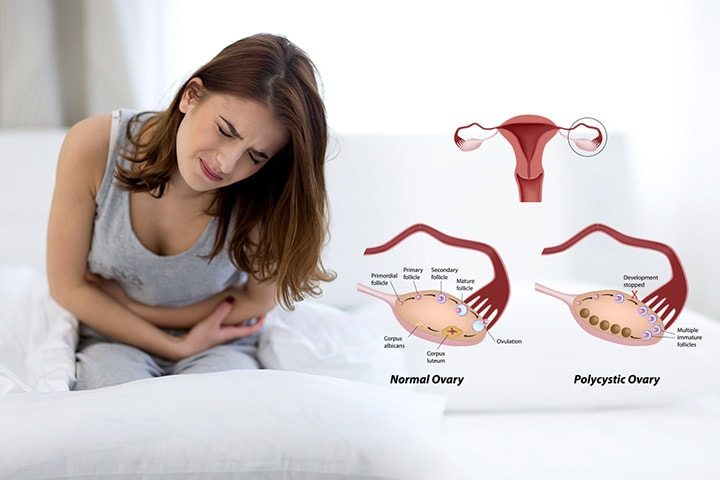PCOD or polycystic ovarian syndrome is often confused with another disorder, PCOS, or polycystic ovarian disease. As the names suggest, both concern the ovaries. Some symptoms like delayed periods may also be common. Confusion, therefore, is only natural. The fact remains that they are significantly different from each other.
To begin with, one is a disease, which means there is a known cause and those suffering from it exhibit a fairly consistent group of symptoms. The other is a syndrome, suggesting that there may be a set of symptoms that occur together, but the specific cause remains largely unknown. Despite the differences, both can be significantly impactful towards reproductive health, considering that the ovaries are involved. So, if you are planning a baby, you may wish to take a look at the specific differences between PCOD vs PCOS for a more informed approach.
Causes
PCOD is a condition where the ovaries contain either immature or partially mature eggs that convert to cysts. The ovaries become enlarged in the process, releasing the male hormone androgen, resulting in hormonal imbalance. The occurrence of PCOD has a lot to do with lifestyle choices. Being obese or overweight, inappropriate stress management and consuming too much junk food are conditions that contribute to it.
PCOS is a typically more severe condition than PCOD and is a metabolic disorder. Here the ovaries produce significant quantities of male hormone which in turn leads to the formation of several follicular cysts every month. This phenomenon halts ovulation, making pregnancy difficult to achieve.
Symptoms and Complications
Some symptoms of PCOS and PCOD are common, like delayed periods, excessive hair growth in the upper arms, chest, stomach and thighs. Unlike PCOD however, some PCOS symptoms are visible right from teenage, like severe acne, weight gain and excessive hair growth.
Women suffering from PCOD are not known to have serious fertility issues. With the right kind of timely medical assistance, they are able to conceive quite easily since regular ovulation takes place. With PCOS however, ovulation becomes difficult and hence, women suffering from it do struggle with infertility issues. The rate of miscarriages is also high with PCOS.
Unlike PCOD, PCOS is a serious condition that is also associated with several health complications including insulin resistance, high cholesterol, clogged arteries or atherosclerosis, hypertension and diabetes.
Diet and Management
Managing both these conditions require self-discipline. Doctors advise a healthy lifestyle consisting of regular exercise, stress and weight management and nutritious meals. Abstaining from smoking and drinking is advised. In some cases, medications may be needed for managing PCOS related complications like hypertension and insulin resistance.
An insight into the differences between PCOD vs PCOS can help in dealing with these conditions or associated fertility issues better. Make sure you seek suitable advice from your gynaecologist for a more specific clarity, relatable to your condition. Once you conceive, make sure you also adopt the right lifestyle practices and knowledge of the right exercises to do, vegetables and fruits to avoid during pregnancy diet, medications to stay away from and so on.

